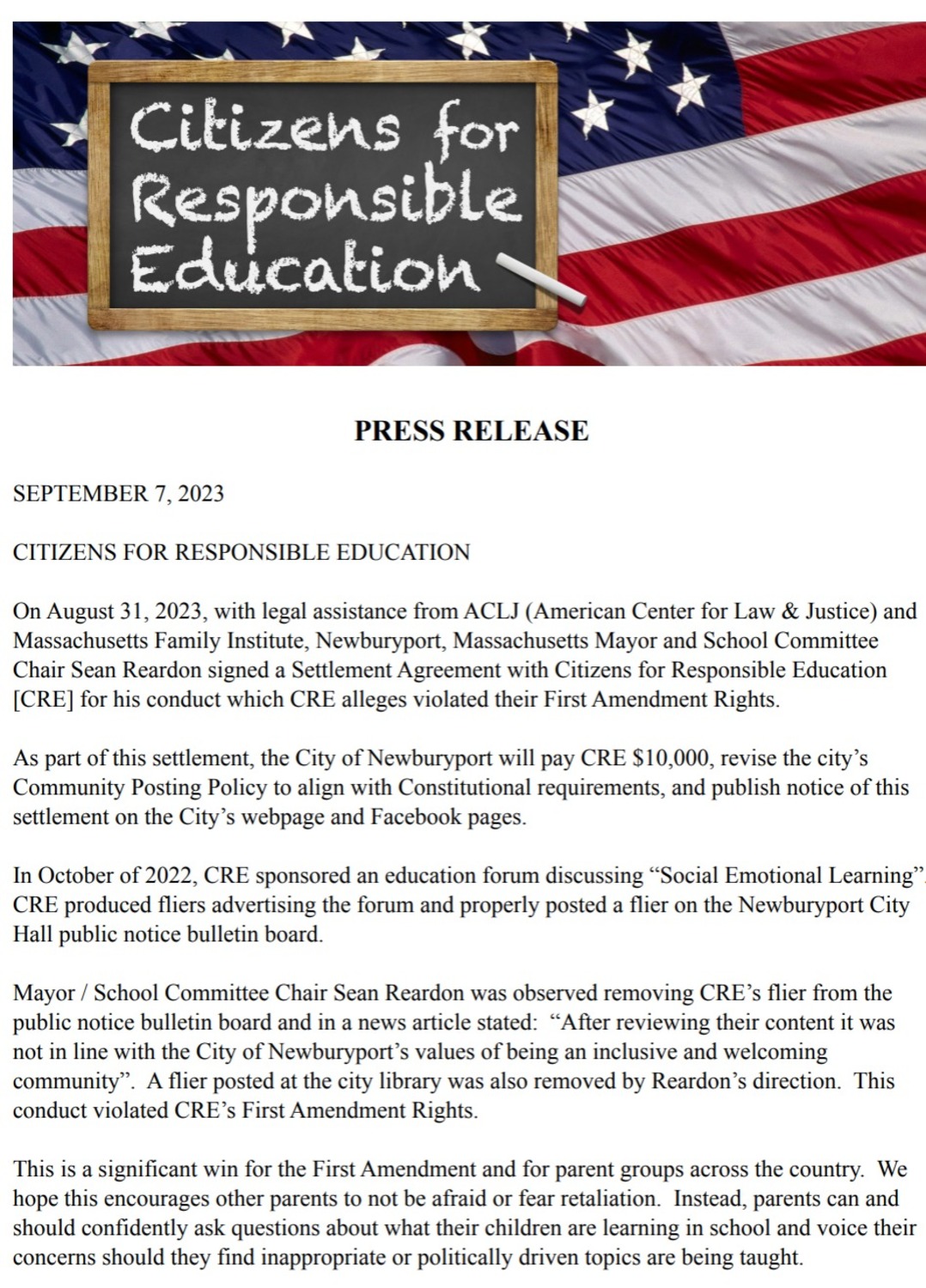
Interested in Volunteering and/or signing up to receive Updates/Newsletters? Simply click on the following below and check the boxes you're interested in.
Volunteer (citizensforresponsibleeducation.org)
What Is Citizens for Responsible Education (CRE)?
Unfortunately, children across the country are being failed by our government run schools. Public schools often receive significant funding from state and federal organizations to follow an agenda that does not provide a child with even a basic foundational understanding of the core principles they need for healthy academic development. This needs to change and we are optimistic that it can.
Citizens for Responsible Education (CRE) is a 501(c)3 nonprofit organization consisting of a grassroots coalition of taxpayers throughout Massachusetts and New Hampshire advocating for schools to teach our kids HOW to think and NOT what to think. We are working to remove costly social engineering programs from school curricula that only serve to divide students from their families, limit their understanding of the real world, and sacrifice their innocence in the name of social activism. Our goal is to restore a healthy, non-political education system that allows for all children to thrive socially and academically by working collaboratively with other parents, parent groups and teachers/administration who want to do what is best to help all children succeed.
What Is Our Approach?
Citizens for Responsible Education is dedicated to uncovering and analyzing every area of interaction within the public school setting that is falling short of expectations and/or not serving the student's best interest and generating awareness of these shortcomings to parents and caregivers to empower them to effectively make informed decisions regarding their child’s education.
We do this through:
Investigation:
• Drafting and submitting directed Freedom of Information (FOIA) requests
Social Media Saturation:
• Distributing information/articles/videos on social media pages
• Encouraging public engagement
• Defining appropriate action steps
Informative In-Person Events:• Presenting public forums and educational conferences
Distribution Of Educational Materials:
• Circulating mailers, e-mails, newsletters, pamphlets, and booklets

